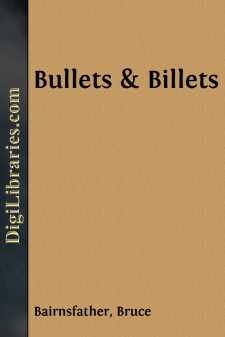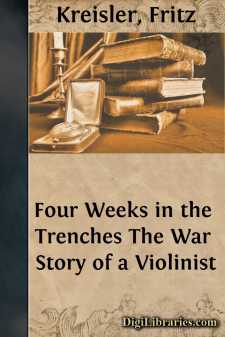Biography & Autobiography
- Adventurers & Explorers 15
- Artists, Architects, Photographers 16
- Business 2
- Composers & Musicians 14
- Criminals & Outlaws 5
- Editors, Journalists, Publishers 6
- Educators 1
- Entertainment & Performing Arts 3
- General 73
- Health, Exercise & Fitness 1
- Historians 3
- Historical 83
- Law Enforcement 1
- Lawyers & Judges 3
- Literary 147
- Medical 7
- Military 48
- Naturalists, Gardeners, Environmentalists 8
- Personal Memoirs & Diaries
- Philosophers 3
- Political 9
- Presidents & Heads of State 38
- Religious 38
- Rich & Famous 27
- Scientists 13
- Women 31
Personal Memoirs & Diaries Books
Sort by:
CHAPTER ILEAVE HOME—BASE HOSPITAL NO. 11—CAMP DODGE "Very well then, Father, you have my permission and best wishes." How the approving words and blessing of good Archbishop Mundelein thrilled me that memorable morning in 1918. The rain-washed freshness of April was abroad in Cass street; and the soft breeze, swaying the curtain of the Chancery window where he was seated, brought incense of...
more...
CHAPTER I LANDING AT HAVRE—TORTONI'S—FOLLOWTHE TRAM LINES—ORDERS FOR THE FRONT Gliding up the Seine, on a transport crammed to the lid with troops, in the still, cold hours of a November morning, was my debut into the war. It was about 6 a.m. when our boat silently slipped along past the great wooden sheds, posts and complications of Havre Harbour. I had spent most of the twelve-hour trip...
more...
by:
Fritz Kreisler
I In trying to recall my impressions during my short war duty as an officer in the Austrian Army, I find that my recollections of this period are very uneven and confused. Some of the experiences stand out with absolute clearness; others, however, are blurred. Two or three events which took place in different localities seem merged into one, while in other instances recollection of the chronological...
more...
by:
Frederick Palmer
I"Le Brave Belge!" The rush from Monterey, in Mexico, when a telegram said that general European war was inevitable; the run and jump on board the Lusitania at New York the night that war was declared by England against Germany; the Atlantic passage on the liner of ineffaceable memory, a suspense broken by fragments of war news by wireless; the arrival in England before the war was a week old;...
more...
by:
Mildred Aldrich
I La Creste, Huiry, Couilly. S et M. September 16, 1914 Dear Old Girl:— More and more I find that we humans are queer animals. All through those early, busy, exciting days of September,—can it be only a fortnight ago?—I was possessed, like the "busy bee," to "employ each shining hour" by writing out my adventures. Yet, no sooner was the menace of those days gone, than, for days at...
more...
by:
Harry Lauder
CHAPTER I Yon days! Yon palmy, peaceful days! I go back to them, and they are as a dream. I go back to them again and again, and live them over. Yon days of another age, the age of peace, when no man dared even to dream of such times as have come upon us. It was in November of 1913, and I was setting forth upon a great journey, that was to take me to the other side of the world before I came back again...
more...
by:
Vernon Bartlett
IN HOSPITAL Close behind the trenches on the Ypres salient stands part of "Chapel Farm"—the rest of it has long been trampled down into the mud by the many hundreds of men who have passed by there. Enough of the ruin still stands for you to trace out the original plan of the place—a house and two barns running round three sides of the farmyard that is fœtid and foul and horrible. It is an...
more...
PARIS WAR DAYS Saturday, August 1, 1914 This war comes like the traditional "Bolt from the Blue!" I had made arrangements to retire from active journalism and relinquish the duties of Paris correspondent of the New York Tribune, which I had fulfilled for sixteen consecutive years. In reply to a request from Mr. Ogden Reid, I had expressed willingness to remain at my post in Paris until the...
more...
CHAPTER I PER ARDUA AD ASTRA In prehistoric times the first man to make for himself a stone hatchet probably became the greatest warrior of his particular region. He may not have been as strong physically as his neighbor, but with the aid of so marvellous an invention as a stone hatchet he undoubtedly conquered his enemies and became a great prehistoric potentate, until some other great man made a...
more...
by:
William Orpen
CHAPTER I TO FRANCE (APRIL 1917) The boat was crowded. Khaki, everywhere khaki; lifebelts, rain and storm, everything soaked. Destroyers, churning through the waves, played strange games all round us. Some old-time Tommies, taking everything for granted, smoked and laughed and told funny stories. Others had the look of dumb animals in pain, going to what they knew only too well. The new hands for...
more...











